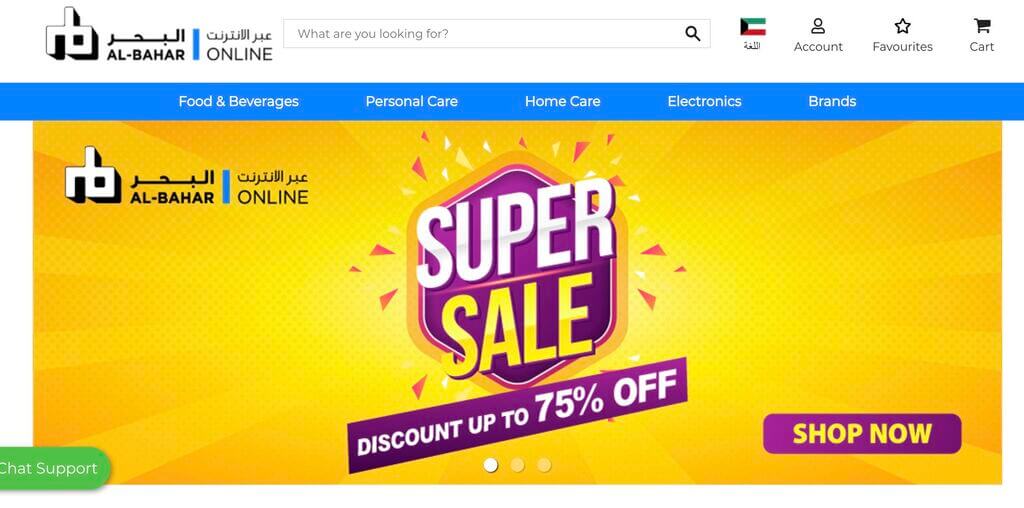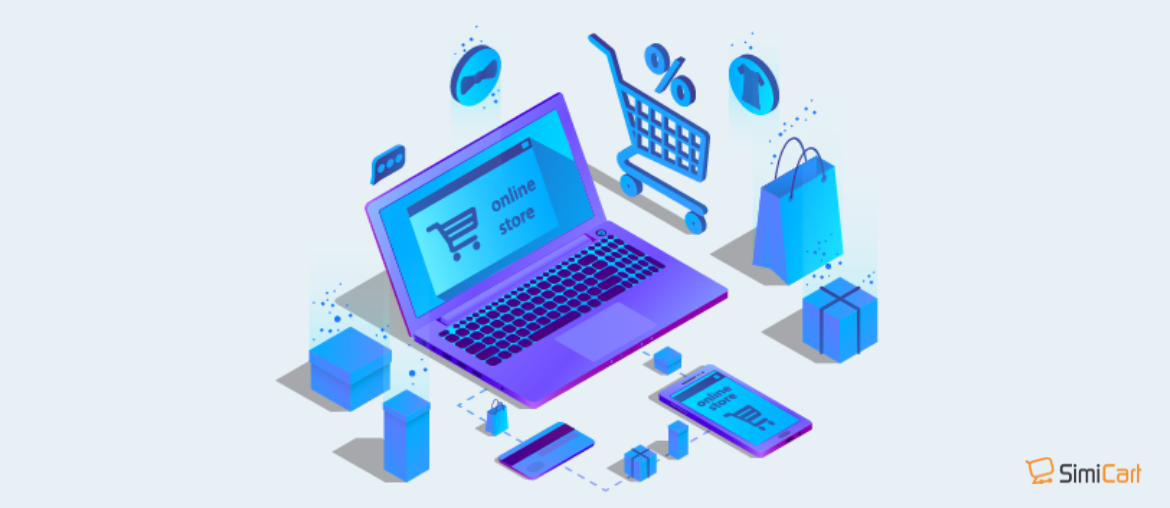Table of contents
For the past few years, especially during the Covid-19 outbreak, eCommerce has become the new evolving trend in the retail industry. Along with its extraordinary expansion, the number of eCommerce platforms in the market constantly grows as an inevitable consequence. At the moment, there is a myriad of available eCommerce platforms for online businesses to choose from, but Magento is still one of the most prevalent online platform solutions amongst other competitors.
Until July 2021, there are around 200,000 active eCommerce websites powered by Magento, which accounts for approximately 12% of all online retail stores using eCommerce technologies. So what is Magento, and why Magento is going to be the next-generation eCommerce solution in the years ahead for the online retail business?
What is Magento?
Magento is a feature-rich eCommerce platform solution with built-in PHP that provides online sellers with complete flexibility and control over their stores’ functionalities and appearance. First released on March 31, 2008, Magento was later acquired by Adobe with a price of $1.68 billion.
Being praised for its flexibility and customization, Magento has been chosen by several large enterprises to start their e-commerce stores, such as Samsung and Nike. This platform is traditionally believed to fit with enterprise-level businesses because it costs a huge amount of money and effort to develop all the desired functions.

At the moment, Magento is launching two available options, which are Magento Commerce and Magento Opensource.
- Magento Open Source: Formerly known as Magento Community, Magento Open Source is a free online platform that assists small-sized businesses in selling online thanks to its flexible, digital commerce solution. This version can be downloaded and installed for free, but merchants still have to cover the cost of hosting, domain and other fees.
- Magento Commerce: Designed for those in need of a full-featured eCommerce solution, Magento Commerce provides enterprises with optimized cloud architecture and hosting as well as AI-powered analytics. This can be considered a premium version of Magento Open Source that includes cloud-hosting as a part of the subscription fee.
Magento key features
One of the main reasons leading to the high popularity of Magento compared to other eCommerce solutions in the market is the fact that Magento offers merchants complete flexibility and control over the functionality of their online channels. In order to do so, Magento provides a robust list of prominent features to help owners the ability to build and customize their online stores that best fit unique business demands and maximize benefits.
Though the number of Magento features is various, there are certain outstanding Magento features that make Magento one of the best eCommerce systems out there in the competitive market:
- Open-source platform: Magento is made under an open-source license, meaning that it is one of the most flexible and scalable eCommerce platforms. Magento offers merchants unrivalled flexibility to manage the functionality of their online store.
- Advanced SEO: Magento has developed exclusive SEO features that assist e-business owners to significantly improve the ranking of their store websites and product pages.
- Remarkable speed: Magento’s page loading speed is rather impressive, even when websites receive high volumes of traffic.
- Multi-platform integration: By allowing integration from 3rd parties, online owners have full control over integrating their store with other selling or payment gateways platforms also.
- Great scalability: It can be said that Magento meets business needs of all sizes, from selling 100 to more than 100000 different products. Magento is completely scalable, with the continuous development of new features.
- Third-party extensions: Along with Magento available tools, this platform always makes the best use of integrating third-party tools and solutions, which supports merchants to upgrade their eCommerce store with ease.
Read more: Why Is Magento the Best E-Commerce Platform?
In 2015, Magento released a new upgraded version called Magento 2, which is better than Magento 1 in terms of security, performance, SEO, speed, ease of use, and many more. Magento 2 has followed Magento 1 steps with extraordinary improvement with more and more businesses migrating from Magento 1 to Magento 2 to build their online stores.
For an in-depth Magento 2 review, please have a look at our exclusive article Magento 2 Platform Detailed Review.
Why Magento is the next-generation eCommerce platform?
1. Conduct shopping everywhere
Modern commerce growth means satisfying customers’ demands wherever and whenever they want to shop. Magento allows multi-platform integration, so it is well within your ability to grow your business into new channels, geographies, as well as to conduct shopping for both businesses (B2B) and customers (B2C) in one platform. This also means that any enterprises following omnichannel retail approach can gain considerable benefit from Magento to integrate all sales channels while still deliver a cohesive and seamless customer experience.

2. Manage efficient operations
Magento is never behind the modern commerce landscape. This eCommerce platform offers all business-sized efficiency, automation, and access to data with a few clicks. The operating systems work smoothly thanks to data-driven commerce organization. Maintaining an intelligent operation is never easier thanks to available Magento Commerce features, including Business Intelligence, Shipping, Inventory Management, Order Management and Customer Service.
3. Leverage cloud-based delivery
As Magento Commerce is a cloud-based platform, eCommerce businesses have the benefit of instant access to the latest software version and improvements. Leverage Magento cloud-based delivery to enjoy fully customizable, secure, and scalable web storefronts with exceptional customer service from the Magento CS team.
4. Deliver meaningful commerce content
We are living in a digital age where potential customers have a tendency to look for any product information on the internet. As a result, eCommerce brands should bear in mind that their website content can efficiently captivate buyers and build up brand engagement. Retail online stores can take advantage of Magento features to deliver personalized commerce content and promotions that best capture targeted customers’ attention.
Successful Magento sites’ story
1. Al-Bahar

Al-Bahar is a Kuwait-based brand dealing in a wide variety of FMCG products, electronics, office equipment-related products from big brands like Unilever, GE, Al Alali and many more. Having been coping with several concerns related to their store websites such as major speed issues, instability and obsolete infrastructure as the old Al-Bahar website was based on Magento 1 which had come to its EOL, Al-Bahar surely in need of major changes on both its frontend and backend.
Fortunately enough, Al-Bahar found SimiCart, the next generation eCommerce Solution for Magento, to offer them solutions. SimiCart offers a clear action plan to rebuild Al-Bahar front-end into a headless Magento PWA using Magento PWA Studio and migrate the existing Magento 1 backend to Magento 2. Given the huge scale of their website, the project requires extra precautions, but the fruitful result is certainly worth the effort. Al-Bahar’s frontend website became more app-like and engaging, and later on resulted in a significantly higher mobile purchase conversion rate, and an intensely reduced mobile cart abandonment rate as well.
2. HP Inc.

HP is one of the pioneers of PCs, workstations, and printers. When HP Asia-Pacific wished for expanding e-commerce technology throughout the regions, they realized it can be quite problematic to deliver localized experiences across multiple geographies when you’re a huge, multinational technology company. More than that, the rapid development of online shopping has enforced them to switch to online-to-offline methods to increase foot traffic in their brick-and-mortar shops.
HP Asia-Pacific was in need of an eCommerce solution that helped them to promote quickly in multiple markets with customers ranging from individual shoppers to small and medium-sized businesses. Magento Commerce became the solution of their choice to support different HP retail shops in different locations to deliver the true taste of the local experience that attract consumers with varied background and status. HP Asia-Pacific new website with support from Magento Commerce had led to a 23% growth in online store purchases, and a good user experience both from online shoppers and HP Asia-Pacific employees.
3. Rubik’s

Rubik’s is one of the world’s best-selling toy companies. Not long ago, Rubik’s webstore was supported by ExpressionEngine, another eCommerce platform on the market. However, as they decided to move to the international market, they realized that the website back-end was too inflexible and complicated. More than that, the global expansion required their site to cover landing pages in various languages and currencies, while the administrative operations remained simple to easily manage.
Rubik’s soon recognized that their current eCommerce platform couldn’t support them on a global scale, and neither Shopify, due to the complexity in managing different sites for different countries. Magento then became Rubik’s team first choice to deploy three instances of their sites in three different regions with only one back end. After 4 months of implementation, Rubik’s launched stores in France, the EU, and the UK, and their website was upgraded with rich content, features, and simple checkout. This resulted in a 20% reduced bounce rate and a 500% higher revenue increase in France.
Conclusion
Now that all you need to know about Magento is in your hands, it is clear that Magento is still one of the best eCommerce solutions for merchants looking to build an online store. With all of Magento’s exclusive features that support eCommerce retail stores in all business aspects, along with its outstanding record of success in the past, Magento is believed to be a next-generation eCommerce solution for all medium and large-sized enterprises for the incoming years.




